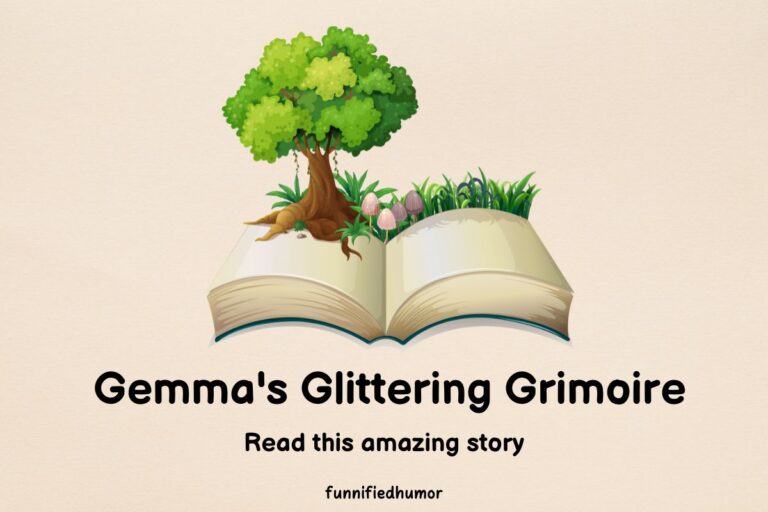Tristan’s Time-Twisting Turntable

Tristan, a lanky teenager with an insatiable appetite for music, stumbled upon an old turntable in his grandfather’s attic. The attic was like a museum of the past, with relics and memories gathering dust in every corner. Amidst this nostalgic chaos, the turntable, with its wooden frame and vintage design, caught his attention.
“It’s beautiful,” Tristan murmured, running his fingers over the smooth surface.
His grandfather, a wiry old man with a head full of silver hair, looked up from his workbench. “Ah, that old thing? It’s been there since my youth. Feel free to try it if you want.”
Tristan, with his grandfather’s permission, carried the turntable to his room. It felt like he was cradling a piece of history. That night, he played a record from his small collection, expecting the familiar melodies of the Beatles. But as the needle touched the grooves of the vinyl, the world around him began to warp and twist.
Woodstock, 1969
Tristan found himself amidst a sea of people, the air filled with the scent of mud, sweat, and an undeniable sense of freedom. Onstage, Jimi Hendrix was in the midst of his legendary performance. Tristan’s heart raced as he realized he was witnessing a pivotal moment in music history.
“How is this possible?” he whispered to himself, but his words were lost in the music.
Returning to his room, Tristan was in awe. The turntable had the power to transport him to significant events in music history. Each record brought a new adventure. He traveled to a smoky jazz club in 1920s New Orleans, where Louis Armstrong’s trumpet solos filled the air. He swayed with the crowds in Harlem during the Harlem Renaissance, absorbing the profound impact of African-American culture on music.
As Tristan’s journeys continued, he began to understand the transformative power of music. It wasn’t just melodies and lyrics; it was a universal language that could unite people across time and space.
One evening, Tristan played a mysterious, unmarked record he found hidden in a corner of the attic. The world around him dissolved once more, and he found himself in a setting unlike any other he had encountered.
Ancient Africa, Time Unknown
He was in the heart of a dense forest, surrounded by a tribe whose music was unlike anything he had ever heard. The beating of drums, the rhythmic clapping, and the haunting melodies sung by the tribe resonated with a raw, primal energy.
An elder, noticing Tristan’s awe, approached him. “Music is the heartbeat of the soul, young one,” he said in a surprisingly familiar language. “It connects us to the earth, to each other, and to the spirits of our ancestors.”
Tristan spent what felt like days with the tribe, learning about their musical traditions. He realized that their music wasn’t just for entertainment – it was a way of preserving history, of connecting with the spiritual world, and of reinforcing the bonds within their community.
Back in his room, Tristan was deeply moved. He had always loved music, but now he saw it as something much more profound. Each journey had taught him how music could transcend barriers of time, culture, and language.
He became more conscious of the music he encountered in his daily life. From the street performers in his town to the diverse array of music on streaming services, he appreciated the threads of history and culture woven into every note.
His friends noticed the change in him. “You’re like a walking music encyclopedia now,” his best friend, Emily, joked.
“I’ve just realized how powerful music is,” Tristan replied, his eyes alight with passion. “It’s like a time machine, a bridge between people, a way to understand each other better.”
One day, Tristan decided to share his secret with Emily. He invited her over and played a record from the 1950s, hoping to take her to the birth of rock and roll. However, as the needle dropped, nothing happened.
“Why isn’t it working?” Emily looked confused.
Tristan was perplexed. He had never tried to share his experiences before. He switched to another record, but still, nothing happened. A sinking feeling grew in his stomach. Had he lost the magic?
That night, he lay in bed, staring at the turntable. A thought struck him. Maybe the turntable’s magic wasn’t meant to be shared. Perhaps it was a personal journey, a way for him to connect with music on a deeper level.
But Tristan didn’t want to keep this gift to himself. He wanted others to feel what he had felt, to understand the unifying power of music.
In the following weeks, Tristan organized a music festival in his town. He used his extensive knowledge to create a lineup that spanned various genres and eras, celebrating the diversity and history of music.
As the festival began, Tristan watched from the sidelines. People of all ages and backgrounds came together, their differences forgotten as they united under the banner of music. They danced to the rhythm of jazz, swayed to the soulful tunes of blues, and rocked out to the energetic beats of rock and roll.
In that moment, Tristan realized that he didn’t need the turntable to experience the magic of music. He had brought people together, creating a new significant event in music history, right in his hometown.
Years later, Tristan became a renowned music historian, known for his deep understanding of music’s impact on society. He never forgot the turntable and the incredible journeys it had taken him on, but he knew that its greatest lesson was teaching him to appreciate the power of music in the present.
As he stood in front of a class of eager students, he smiled, ready to pass on the timeless tales of music’s journey through history. “Music,” he began, “is more than just sound. It’s a journey through time, a unifier of hearts, and the most beautiful language we have.”
And with each word, he carried the legacy of the turntable, a magical device that had shown him the true power of music.





